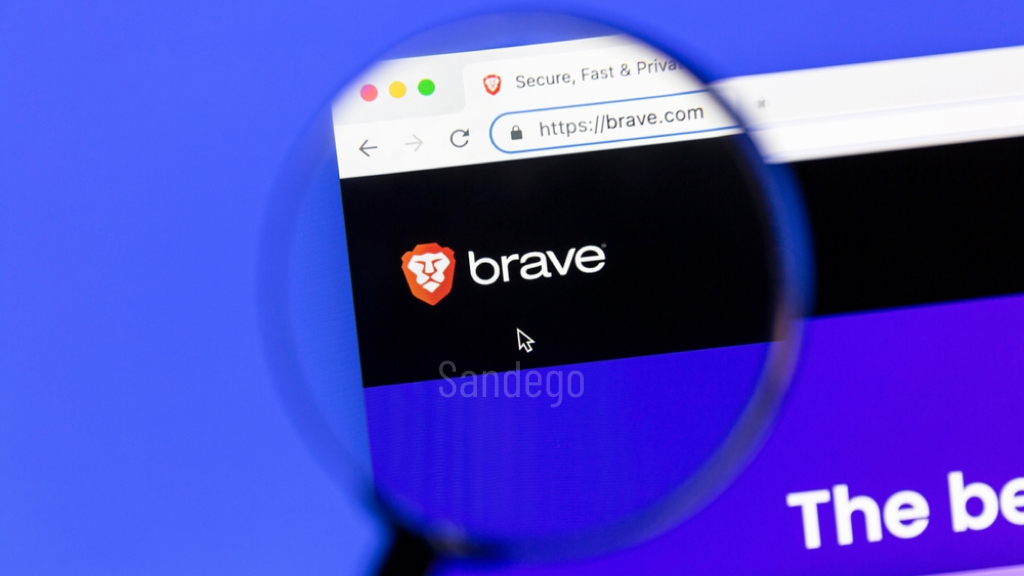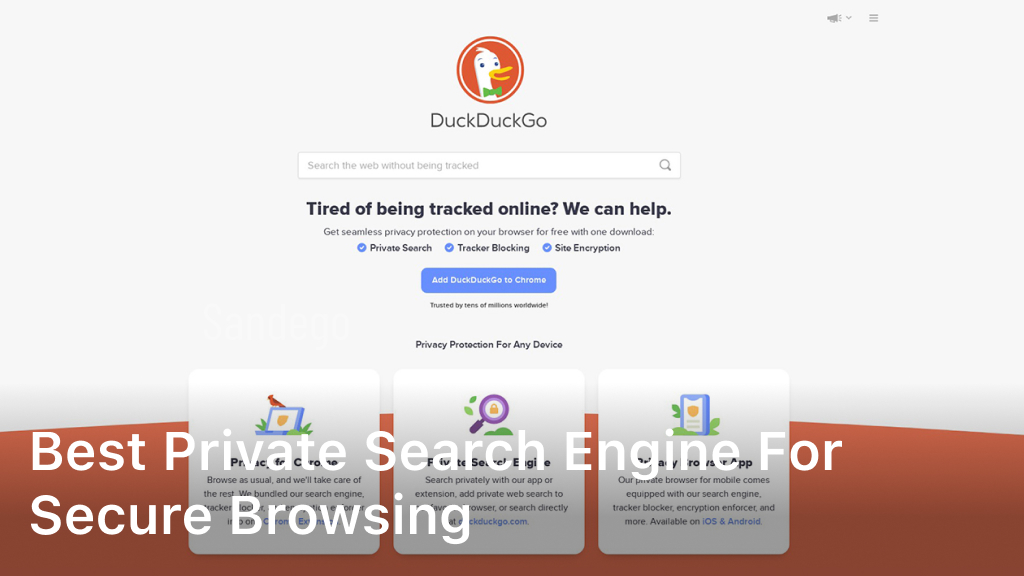When it comes to browsing the web, privacy and security are becoming increasingly important concerns for many users. With data breaches, online tracking, and targeted advertising on the rise, it’s essential to take proactive measures to protect your personal information. That’s where private search engines come in. These specialized search engines prioritize users’ privacy by minimizing data collection and eliminating tracking. In this article, we will explore some of the best private search engines available today, and why they’re an excellent choice for secure browsing.
If you’re looking for a secure search engine that doesn’t track your online activity, a private search engine may be just what you need. We’ll discuss the features you should look for in a secure search engine and how they can help protect your privacy. From private web search engines to anonymous search engines, we’ll provide a comprehensive overview to help you choose the best private search engine that meets your specific needs.
So, whether you’re a privacy-conscious user or just someone who wants to keep their online activity secure, our guide to the best private search engines is the perfect place to start.

What is a Private Search Engine?
A private search engine is a web search tool that prioritizes privacy and anonymity for users. Unlike traditional search engines that track and store user data for targeted advertising, private search engines utilize secure search technology to keep users’ search queries and personal information private.
Private search engines are an essential tool for users who value their privacy and want to keep their online activity anonymous. When choosing the best search engine for privacy, there are several factors to consider, including the search engine’s data retention policies, encryption methods, and anonymization techniques.
Comparing different private search engines is crucial to finding the best one for your specific needs. Some search engines, such as DuckDuckGo and StartPage, prioritize user privacy and anonymity by providing innovative tools such as encrypted connections and search query obfuscation. Others, such as Swisscows and Qwant, operate on a strict no-tracking policy, ensuring that user data is never collected or shared.
Overall, when comparing private search engines, it’s important to choose a search tool that aligns with your privacy needs and values. With the growing concerns over data privacy and cybersecurity, private search engines are becoming an increasingly popular choice for users who want to browse the internet with peace of mind.
Features of a Secure Search Engine
Secure search engines are designed to prioritize user privacy by preventing tracking and data collection. One of the critical features of a secure search engine is the use of a private search browser.
How Private Search Browsers Work
The private search browser encrypts user data and search activity, making it impossible for third-party entities to gather information about the user’s browsing habits. Searches are conducted on encrypted servers, reducing the risk of data breaches and privacy violations.
Effectiveness in Preventing Tracking
Secure search engines prevent tracking by disabling cookies, blocking ads, and concealing the user’s IP address. This makes it impossible for websites to track the user’s activity and browsing history, enhancing the level of privacy and anonymity.
Additional Privacy-Enhancing Features
Secure search engines often come equipped with additional privacy-enhancing features, such as encrypted messaging, protection from malicious sites, and blocking of unwanted content. These features further increase the user’s privacy and security while browsing online.
Top Private Search Engines
Are you in search of the best private search engine that prioritizes your anonymity and privacy? Look no further than this curated list of private search engines that offer top-notch browsing experiences:
DuckDuckGo
Considered by many to be the best private search engine, DuckDuckGo does not track your activity and does not store any personal data. With its clean interface and easy-to-use features, it provides a hassle-free browsing experience that prioritizes privacy.
StartPage
StartPage provides search results sourced from Google while preserving your privacy. It does not track your IP address or search history, and it offers the added benefit of being publicly audited for transparency.
Searx
Searx is an open-source search engine that offers complete anonymity, does not track your search history, and is completely ad-free. It provides users with the flexibility to customize and tailor their search results according to their preferences and needs.
These private search engines are only the tip of the iceberg when it comes to the services available for secure browsing. To ensure you make an informed decision, don’t forget to read private search engine reviews and analyze your options carefully.
How Private Search Engines Protect Your Privacy
Private search engines are becoming increasingly popular among internet users who value their privacy. These search engines offer several strategies to protect users’ data and prevent tracking by third-party entities, including:
Anonymous search engine
Private search engines allow users to browse the internet without providing any personal information, keeping their searches anonymous. This feature ensures that their search history is not linked to their identity, preventing websites from collecting data on their browsing behavior.
Search engine without tracking
Unlike traditional search engines, private search engines do not track users’ searches or collect their personal data. This means that users can use these search engines without having to worry about their data being sold to advertisers or other third-party entities.
Secure search queries
Private search engines use encryption technology to secure users’ search queries, ensuring that their search terms cannot be intercepted by malicious actors. This feature protects users from potential security breaches and keeps their sensitive information safe.
Minimizing data retention
Private search engines often have strict data retention policies, deleting users’ search history and other personal data after a certain period. This feature minimizes the amount of data available for collection by internet service providers and other entities, offering users an added layer of privacy protection.
Overall, private search engines offer several strategies to protect users’ privacy and ensure secure browsing. By using these search engines, users can browse the internet with peace of mind, knowing that their personal data is protected and their browsing behavior is not being tracked.
Tips for Maximizing the Effectiveness of Private Search Engines
Private Search Engines are an excellent way to ensure online privacy and security. To help you get the most out of your private search engine, we’ve compiled some essential tips and recommendations:
1. Install a Browser Extension
Many private search engines offer browser extensions that allow you to use their search engine directly from your browser’s search bar. Installing this extension can save time and ensure that all your searches are private.
2. Customize Your Settings
Most private search engines have customization options that allow you to modify settings to fit your specific needs. These settings may include regional preferences, search filters, or language options.
3. Use Additional Privacy-Enhancing Tools
Complement your private search engine with additional privacy-enhancing tools like Virtual Private Networks (VPNs), ad-blockers, or anti-tracking extensions. These tools can help to safeguard your privacy even further.
4. Don’t Login to Search Engines
Logging into any search engine lets it track your search history and other data that it can use to serve you targeted ads. The best practice is to avoid logging in to search engines whenever possible.
5. Clear Your Search History
Many private search engines offer a “Clear Search History” option. It is an excellent idea to use it frequently to ensure that nobody can access your search history data.
By following these tips, you can enjoy a more private and secure browsing experience with your private search engine of choice.
Conclusion
Using a private search engine is one of the best ways to ensure your online privacy and security. By prioritizing anonymous searches and minimizing data retention, these search engines provide a safer browsing experience.
When it comes to choosing the best private search engine, there are many options available. Our top picks are DuckDuckGo, StartPage, and Searx. These secure search engines not only protect your privacy but also provide an excellent search experience.
Remember that your online privacy is in your own hands. By using a private search engine, you can take one step further towards anonymous browsing and protecting your personal data. So, start using the best private search engine today and enjoy a secure search experience.
FAQ
What is a private search engine?
A private search engine is a search engine that prioritizes user privacy by not tracking or storing user data. It allows users to search the internet without their search queries and personal information being collected or shared with third parties.
Why is a private search engine important for privacy?
Using a private search engine is essential for maintaining online privacy. It prevents search engines from tracking user activities, collecting personal information, and creating detailed profiles. Private search engines help to protect user data, preserve anonymity, and minimize targeted advertising.
How do private search engines compare to each other?
Private search engines vary in terms of their search algorithms, user interfaces, and privacy features. Some may prioritize certain aspects of privacy, such as not storing search history, while others may focus on additional security measures, like encryption. It is important to compare different private search engines to find the one that best aligns with your privacy requirements.
What are the features of a secure search engine?
Secure search engines offer features such as encryption, which ensures that all communication between users and the search engine is encrypted and cannot be easily intercepted. They also prioritize not storing user search history, use secure connection protocols, and often offer additional privacy-enhancing features like ad-blocking and tracker-blocking.
Which are the top private search engines available?
Some of the top private search engines currently available include DuckDuckGo, Startpage, Qwant, and Searx. Each of these search engines emphasizes privacy and offers unique features that contribute to a secure and anonymous browsing experience.
How do private search engines protect user privacy?
Private search engines protect user privacy by not tracking or storing search history, not collecting personal information, and encrypting communication between users and the search engine. They also often prevent the inclusion of personalized ads and search results based on user data, ensuring that search queries are kept anonymous.
What are some tips for using private search engines effectively?
To maximize the effectiveness of private search engines, consider using browser extensions that further enhance privacy, such as ad-blockers, script-blockers, or anti-tracking tools. Additionally, explore the customization options available with each private search engine to tailor the browsing experience to your preferences.






